5 Tips for a Healthier 2024
Our experts share simple ways to create healthy habits for the new year.
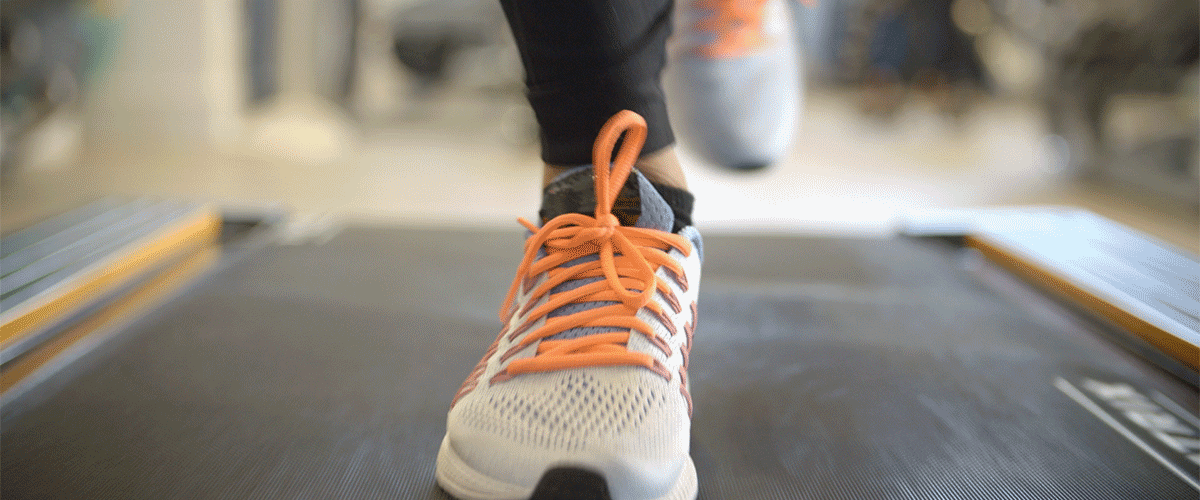
With health always a priority heading into a new year, leading experts from NewYork-Presbyterian shared with Health Matters their tips to help create healthy habits in 2024.
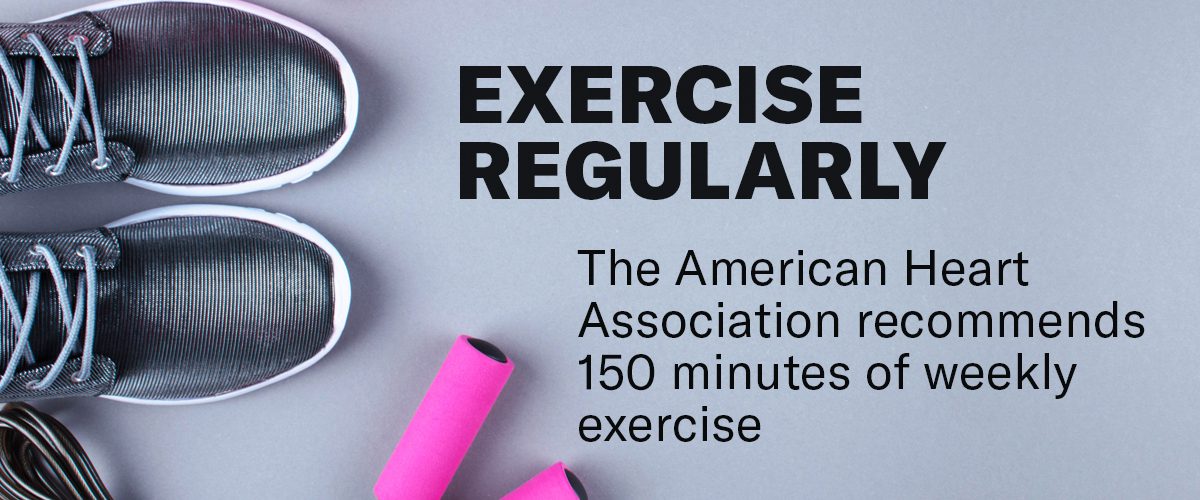
1. Exercise Regularly
Staying physically fit improves cardiovascular and muscular health and helps fight disease. Exercising also has been shown to reduce stress and improve your overall mood, so try to squeeze in at least 150 minutes of moderate-intensity aerobic exercise each week, the minimum recommended by the American Heart Association, plus at least two days of muscle-strengthening activities.
But effective exercise doesn’t have to be time-consuming or require fancy equipment. In fact, there is a growing body of evidence indicating that incorporating short bursts of exercise into everyday activities — running up the stairs in your home or office instead of walking for example — can make a difference towards improving a person’s overall health. Among the types of quick, simple exercises that can effectively activate the muscles are isometric exercises, which involve contracting muscles while holding one position. A recent study found that these exercises helped reduce blood pressure in people with preexisting hypertension. “By doing isometric exercises a few times a day for a few minutes and getting in these quick bursts of activity, you can build up enough exercise to improve blood flow and keep yourself healthy,” says Dr. Elan Goldwaser, a pediatric and adult sports medicine physician with NewYork-Presbyterian Westchester. “Wall sits, where you hold yourself in a seated position with your back against a wall, and planks, where you hold what looks like a push-up position, are fairly common isometric exercises. But those can be difficult for people with pre-existing orthopedic conditions. There are easier options, like knee extensions, where you straighten your leg and hold that position while squeezing your thigh muscle. You’ll still get an intense isometric exercise, but it’s less rigorous on the body.”
In the winter months, don’t be afraid to brave the cold for your workouts. “Exercising outdoors provides all of the physical benefits that we get from indoor exercise — cardiovascular health, strength, flexibility, and endurance — but we also get many other important benefits,” says Dr. Morgan Busko, attending physician at NewYork-Presbyterian Westchester. “When you are outdoors, you don’t realize that you’re tackling hills or uneven trails, as opposed to being on a machine in the gym, where you may stay at the same resistance or level of intensity for the entire the workout.” Plus, just being in the sun increases your body’s creation of vitamin D, which protects you from a host of medical problems, says Dr. Busko. “If you do the same exact workout outdoors versus indoors, you’re getting a bigger dose of these neuromuscular transmitters that promote a happy mood,” she adds.
Regular movement during the work day can also help reduce aches and pains. “Motion is medicine when it comes to spine health,” says Dr. J. Ricky Singh, director of interventional spine at Och Spine at NewYork-Presbyterian/Weill Cornell Medical Center and vice chair and associate professor in the Department of Rehabilitation Medicine at Weill Cornell Medicine. For example, you can add 10 squats, 10 tricep dips on a solid chair, and wall pushups to your daily routine. Also, make a point to get up from your desk two or three times an hour to walk around and do light stretching, such as back bends, which will help counter being hunched over a computer.
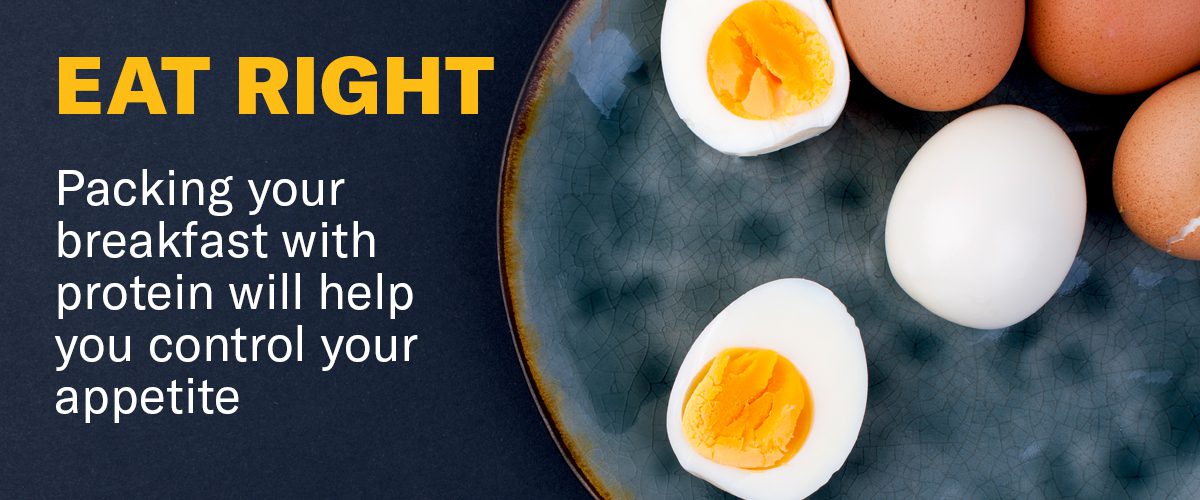
2. Eat Right
In addition to getting enough fruits, vegetables, and whole grains throughout the day, focus on protein in the morning, says Dr. Rekha B. Kumar, an attending endocrinologist at NewYork-Presbyterian/Weill Cornell Medical Center and an assistant professor of medicine at Weill Cornell Medicine. Packing your breakfast with protein will keep blood sugar and some “hunger hormones” more stable throughout the day, helping to control your appetite. Egg-white omelets, Greek yogurt, and protein shakes are examples. Dr. Kumar also advises against too much sugar, especially in the form of high fructose corn syrup. Consuming excess sugar leads to a condition called insulin resistance, which is a precursor to type 2 diabetes, a fatty liver, and cardiovascular disease. It has also been associated with cirrhosis, neuropathy, kidney disease, general inflammation, and cancer.
One easy-to-follow diet is the Mediterranean diet, a plant-based, low-carbohydrate diet that is full of “healthy” fats like nuts and seeds and is clinically proven to decrease our risk of developing heart disease, says Dr. Altaf Pirmohamed, site director of cardiology at NewYork-Presbyterian Lower Manhattan Hospital and assistant professor of clinical medicine at Weill Cornell Medicine. “Focus on eating vegetables cooked in olive oil and natural spices, fruits, whole grains, and healthy fats,” he says.
Dr. Alessio Pigazzi, chief of colorectal surgery at NewYork-Presbyterian/Weill Cornell Medical Center and Weill Cornell Medicine, agrees, noting the diet’s benefit to colon health as well. What you eat can cause inflammation in your bowels and gut, and inflammation is a predisposing factor for colorectal cancer development. Researchers have identified the main food substances that cause inflammation in the body and may contribute to an increased risk of colorectal cancer: Sugar, animal fats, and red and processed meats. There isn’t one specific vegetable that is a magic cure-all for a healthy colon. It’s more about eating a variety of nutritious foods and focusing on a colorful, plant-based diet. “The best diet — and I’m a little bit biased because I’m Italian — is probably a Mediterranean diet on steroids,” says Dr. Pigazzi. “We need to increase the consumption of fruit, vegetables, legumes, nuts, and berries and try to keep the amount of red meat and animal fats to an absolute minimum.”
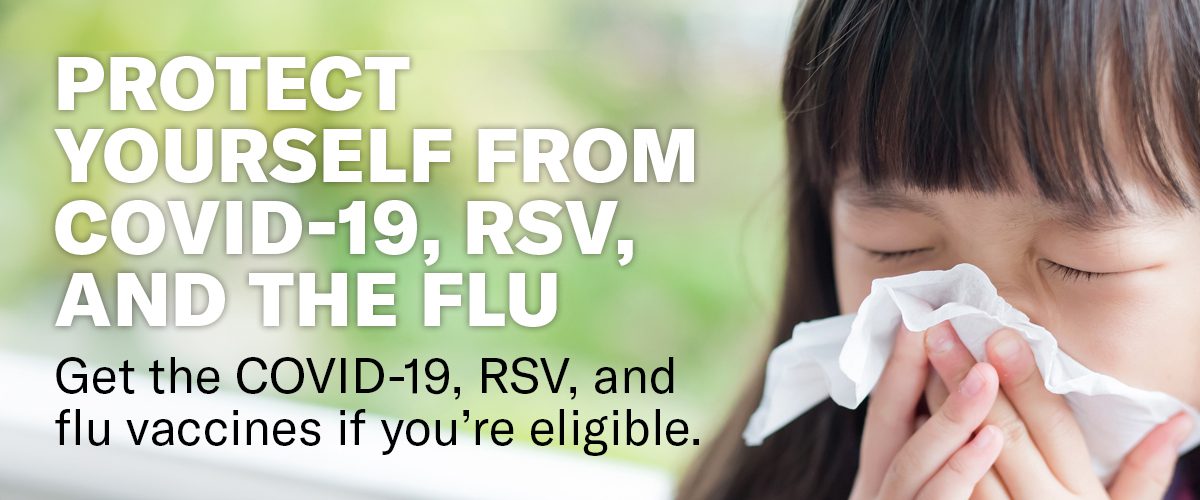
3. Protect Yourself From COVID-19, the Flu, and RSV
As cases of COVID-19, flu, and respiratory syncytial virus (RSV) persist across the U.S., it is important to take precautions to protect yourself from these respiratory illnesses, says Dr. Tina Z. Wang, who specializes in infectious diseases and hospital epidemiology at NewYork-Presbyterian/Columbia University Irving Medical Center. The single best way to protect yourself from the flu and COVID-19? Get vaccinated, says Dr. Wang. “It will protect not only yourself but also helps to prevent transmission to others.”
With new COVID-19 vaccines available, the updated shots are expected to better target new variants, according to experts. The Centers for Disease Control and Prevention (CDC) has recommended the updated vaccines, made by Pfizer-BioNTech and Moderna for anyone 6 months and older, and Novavax for anyone 12 and older.
Dr. Keith Roach, a general internist and an associate attending physician at NewYork-Presbyterian/Weill Cornell Medical Center, says it’s safe to get the vaccines at the same time. “We already give people multiple vaccines at the same time. Our bodies can certainly handle all of the antigens in these vaccines without any trouble.”
It’s especially important for pregnant women to protect themselves from the flu and COVID-19 with vaccines. Not only is the flu shot effective and safe for the baby, says Dr. Laura Riley, obstetrician and gynecologist-in-chief at NewYork-Presbyterian/Weill Cornell Medical Center, but it also protects babies who are born during flu season, which runs from October through April. Flu vaccinations given to pregnant women reduce the risk of hospitalization from influenza by about 70% for infants younger than 6 months old. As for COVID-19: “We do have lots of epidemiologic data which suggests that pregnancy plus COVID-19 is not a good mix,” says Dr. Riley. “Pregnant women have had more admissions to the ICU, more mechanical ventilation, and more deaths, although the absolute number is low. The flip side is you’ve got a vaccine that works to prevent severe illness.”
As for RSV, a new vaccine for pregnant people is now available to protect their babies from the common respiratory virus that can cause serious illness in infants and young children. This single-shot RSV vaccine, called Abrysvo, is the first maternal vaccine to be given during pregnancy to protect newborns from RSV. “I am very excited about this new vaccine,” says Dr. Riley. “It has proven to be safe and effective, and I’m encouraging all of my eligible patients to get the vaccine during RSV season.”
The preventive measures for COVID-19 also apply for the flu and RSV: avoiding large crowds and gatherings, wearing a mask, social distancing, frequent handwashing, and staying at home when you feel sick. “A lot of people may be coughing and sneezing, so the likelihood of transmission is much higher when you’re having active symptoms,” says Dr. Ting Ting Wong, an attending physician and infectious disease specialist at NewYork-Presbyterian Brooklyn Methodist Hospital.
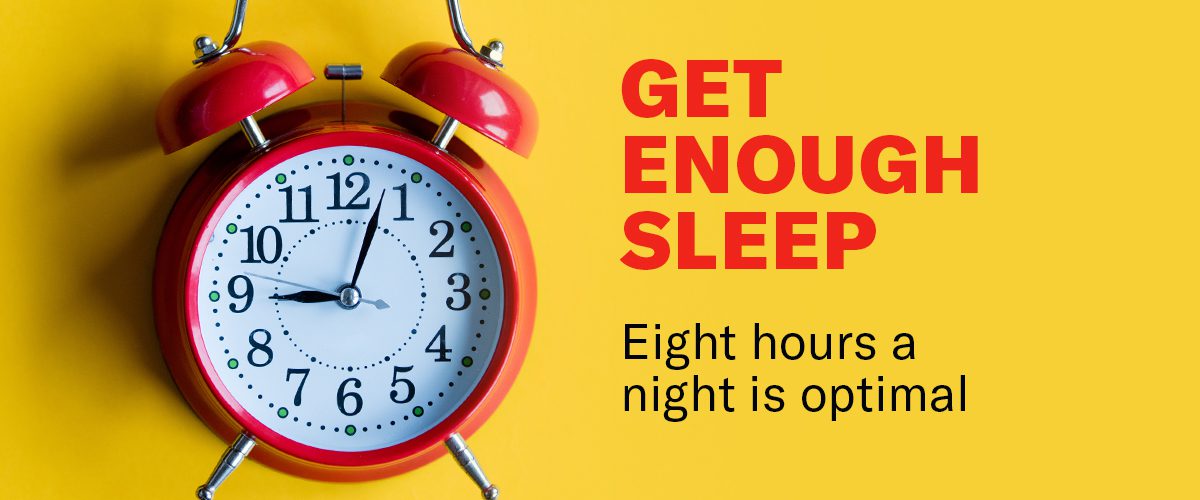
4. Get Enough Sleep
It’s critical to keep a regular sleep schedule and get about eight hours of sleep a night, says Dr. Daniel Barone, a neurologist and sleep medicine expert at the Center for Sleep Medicine at NewYork-Presbyterian/Weill Cornell Medical Center and an associate professor of neurology at Weill Cornell Medicine.
“Many think of sleep as the first thing we can steal time from, as if it’s flexible or bonus time,” says Dr. Ana Krieger, director of the Center for Sleep Medicine at NewYork-Presbyterian/Weill Cornell Medical Center and Weill Cornell Medicine. “But immune, hormonal, and metabolic regulation is associated with sleep regularity. It’s the time during which the brain cleanses itself, so we need to prioritize it. The goal is to regularly align your personal and professional activities within the 16 hours around your eight-hour sleep period.” She shares these tips to get a better night’s sleep.
- Keep to an anchor wake-up time
You can always compromise a little bit on the weekends, but try to maintain the same wake-up time. This trains your body to activate the systems of your brain, increase your body temperature, and release cortisol around the same time. Having an anchor helps you create a sleep rhythm, which your brain can naturally perpetuate. - Be mindful when you drink caffeine
Caffeine can be in your body for nine hours, so it can really affect your ability to fall asleep. If you eat or drink caffeine between 2 p.m. to 4 p.m., it can keep you up until midnight. Pay attention to your intake of foods and beverages with caffeine, like dark chocolate, green tea, or coffee. - Reallocate tasks
Think about the best ways to get things done so that you’re not cramming them into the two hours before you fall asleep. Maybe there are things you’re doing late at night that you can do in the morning. People might say, “I’m too tired in the morning,” but you may be tired because you’re going to bed late. If you can adjust to an earlier time, you may find you’re just as productive when you wake up. - Use alarms for going to bed
I recommend using alarms as reminders. If you want to go to bed at 11:30 p.m., set an alarm for an hour before so you know when to wrap up your activities and signal your body and brain to slow down.
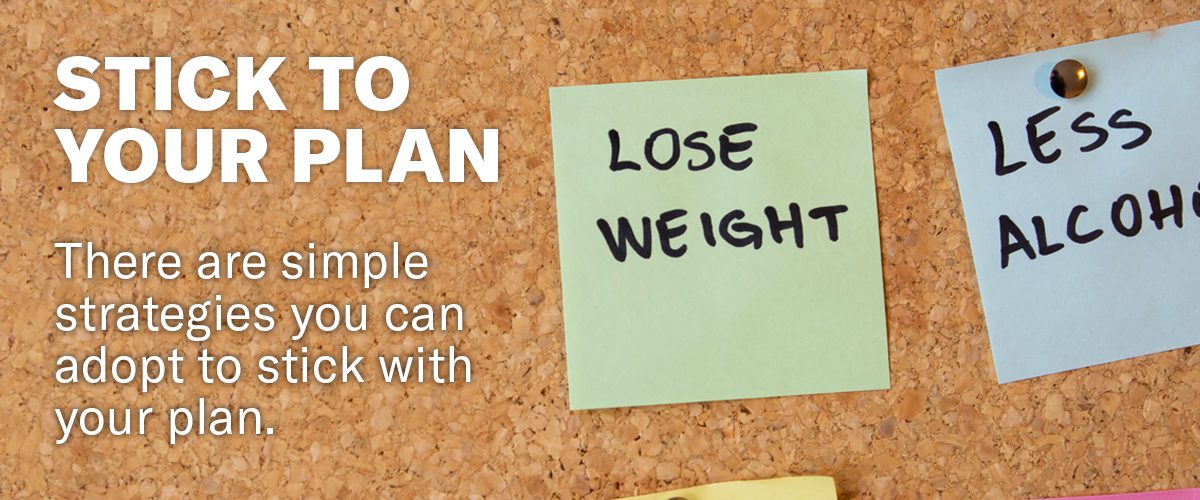
5. Stick to Your Plan
Whether you’re looking to lose weight, get in better shape, stay in better touch with family and friends, quit smoking or drinking, or have another goal in mind, there are simple strategies you can adopt to stick with your plan, says Dr. Gail Saltz, a psychoanalyst and assistant attending physician at NewYork-Presbyterian/Weill Cornell Medical Center and clinical associate professor of psychiatry at Weill Cornell Medicine. She suggests:
- Own up to what needs to be changed.
- Write out your goals and corresponding action plan in weekly parts.
- Start with a journal entry of “Why?”
- Create incentives.
- Tell someone else.
Additional Resources
For more wellness tips, visit Nutrition & Wellness, and for all of your healthcare needs, visit Find a Doctor.

